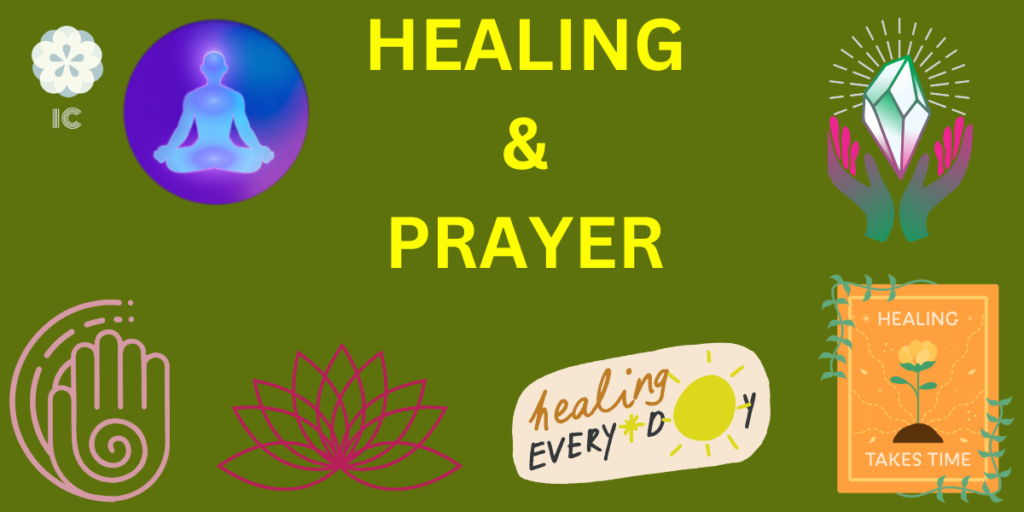Healing & Prayer

Healing and prayer have been intertwined throughout human history, deeply rooted in cultural, spiritual, and religious traditions across the globe. While the efficacy of prayer in physical healing remains a topic of debate within scientific and medical communities, its significance in promoting emotional, psychological, and spiritual well-being cannot be overlooked.
Prayer, often regarded as a form of communication with a higher power, serves as a source of solace, guidance, and strength for individuals navigating illness, adversity, and life’s challenges. Across diverse faith traditions, prayers are offered for healing, comfort, and restoration, reflecting a profound belief in the power of divine intervention and spiritual healing. Whether through structured rituals, spontaneous expressions, or silent contemplation, prayer provides a channel for connecting with the transcendent and finding inner peace amidst turmoil.
Numerous studies have explored the potential impact of prayer on health outcomes, yielding mixed results and prompting ongoing inquiry into the complex interplay between faith, spirituality, and healing. While some research suggests a correlation between prayer and positive health outcomes, including improved coping mechanisms, reduced stress, and enhanced overall well-being, others emphasize the importance of contextual factors, placebo effects, and the limitations of empirical measurement in assessing spiritual experiences.
Beyond its physiological effects, prayer fosters a sense of community, compassion, and interconnectedness among individuals, forging bonds of solidarity and support in times of illness and suffering. Prayer gatherings, interfaith ceremonies, and communal rituals serve as platforms for collective healing, uniting individuals in shared hopes, aspirations, and aspirations for healing and wholeness.
Moreover, prayer complements conventional medical care by addressing the holistic needs of patients, recognizing the intricate interplay between mind, body, and spirit in the healing process. Integrative approaches to healthcare, which incorporate spiritual practices, mindfulness techniques, and psychosocial support alongside medical interventions, offer a comprehensive framework for promoting holistic healing and patient-centered care.
Ultimately, healing and prayer intersect at the crossroads of faith, resilience, and the human spirit, transcending cultural boundaries and theological differences to offer solace, strength, and renewal to those in need. While the mechanisms underlying the relationship between prayer and healing may elude empirical validation, their profound impact on individual and collective well-being underscores the enduring power of spirituality in the journey toward healing and wholeness.
